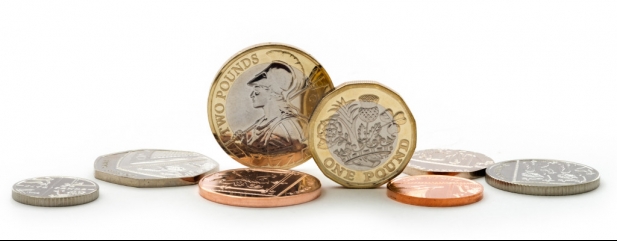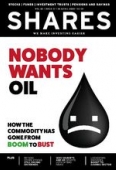Archived article
Please note that tax, investment, pension and ISA rules can change and the information and any views contained in this article may now be inaccurate.
Will dividends and share buybacks ever return to historic levels?

The widespread destruction of dividend income has been one of the biggest changes to investors this year aside from the significant upheaval to how we live our lives as result of the coronavirus pandemic.
The big question is whether the lack of dividends among a large number of companies is a temporary issue or a sign that shareholder returns may be dramatically different for some time to come.
In the first three months of 2020 a staggering £25.4bn of dividends have been put on ice or scrapped altogether, with an extra £23.9bn still at risk, according to the quarterly dividend monitor run by Link Asset Services.
Some of these dividend cuts are a consequence of sensible liquidity management by companies given the scale of uncertainty ahead, while others are due to regulatory pressures. UK banks fall into this latter category, where payouts worth £13.9bn, according to Link, have been axed for now. The plunge in demand for oil and various commodities means the need for cuts across these sectors remains hotly disputed in the markets.
EMERGING DEBATE
Beyond the short-term there is a greater debate about what shape shareholder returns will take once the pandemic has fizzled out. Will dividends and corporate share buybacks resume as before or will there be a ‘new normal’ in shareholder distributions?
‘Those companies that maintain their dividend and/or share buyback commitments during downturns is usually a sign of confidence in the resilience of their operating business models,’ says investment bank UBS.
In theory, once cash flows have recovered from the coronavirus crisis companies should be able to return to practices of the past. But there is the possibility that this may become untenable from now on and so it is not possible to simply predict that things will return to normal.
‘We are not convinced distributions will return in the same fashion as and when (or if) cash becomes available,’ it adds.
Under a worst case scenario, dividends for the whole of 2020 could more than halve from the £98.5bn paid out in 2019, according to Link’s calculations.
‘All the “at-risk” dividends would be cancelled as well. This would leave payouts this year at £48bn, down 51% compared to 2019,’ says Link.
Were that to happen it would mean the UK dividend yield dropping to 2% for the current calendar year, way below the 3.5% average for the past 30 years.
Fortunately, the worst-case scenario is not the most likely one. If only the ‘confirmed and expected cancellations’ take place, £71.9bn of dividends will be paid in 2020.
NEW RETURNS LANDSCAPE
UBS suggests it will be difficult for things to return to normal and that the dividend landscape may be permanently changed.
One key reason is that Covid-19 has cast a more intense spotlight on the ‘social’ element of ESG (environmental, social and governance), with an increased focus on inequality.
‘While it is too early to know if attitudes have changed permanently, closer scrutiny of social issues may make it more difficult to continue with (or restart) distributions in line with prior practice,’ UBS says.
Higher taxes are one possibility. It says: ‘Previously governments might have wanted, but felt unable, to increase tax revenues to address things like climate change, inequality or economic crises. This may bring extraordinary government responses in fiscal policy.’
Distributions will resume for many companies, and while UBS sees dividends as potentially less controversial than buybacks, making any kind of payout to shareholders will understandably have to demonstrate that they will not put long-term corporate health at risk, and fall within the remit of any potential new regulatory or social framework.
Dividends are strategic, buybacks are tactical
‘The fundamental difference between dividends and buybacks is that dividends are strategic, whereas buybacks are tactical. Thus, share buybacks can be considered to be more about short-run behaviours such as share price movements and tax windfalls, with fewer broad-based tangible benefits such as pension income from dividends,’ writes UBS.
‘Exceptions might include companies with very transparent buyback policies, or – for example – tech companies buying back stock to offset higher share counts as a result of stock-based compensation.
‘Pre-Covid, share buybacks were already under scrutiny, particularly in light of widespread issues around inequality. Given the significant social and societal issues raised by the crisis, companies could be under pressure to avoid restarting repurchases – especially where they are seen to have meaningful exposure to ESG “S” issues (eg, wages, benefits) – until those issues are addressed.
‘Certain types of dividends might be viewed similarly. For example, dividends distributed within pyramid structures (giving the lion’s share to e.g. founder owners) or dividend tactics used to optimise tax (already in the firing line of regulators) as well as dividend strategies designed to favour particular stakeholders could be at risk post-Covid.’
Important information:
These articles are provided by Shares magazine which is published by AJ Bell Media, a part of AJ Bell. Shares is not written by AJ Bell.
Shares is provided for your general information and use and is not a personal recommendation to invest. It is not intended to be relied upon by you in making or not making any investment decisions. The investments referred to in these articles will not be suitable for all investors. If in doubt please seek appropriate independent financial advice.
Investors acting on the information in these articles do so at their own risk and AJ Bell Media and its staff do not accept liability for losses suffered by investors as a result of their investment decisions.
Issue contents
Editor's View
First-time Investor
Great Ideas
- Digital change expert Kainos remains a great pick
- Time to take profits on IT security group Avast
- Computacenter resilient but dividends are off the menu
- Luceco can move beyond ‘darkest hour’
- Buy ITV shares as advertising activity could soon pick up
- Travis Perkins can capitalise on homebuilding restart

 magazine
magazine










